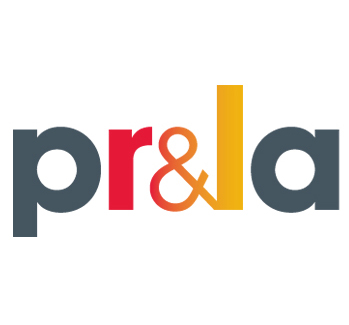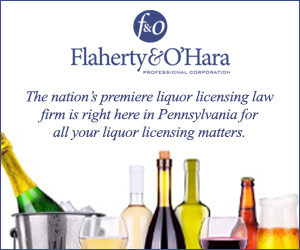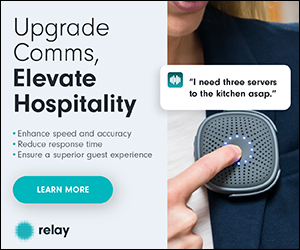Partisan Politics
It is hard to imagine life before COVID, even within the legislature, but this year’s session continued to display the partisan divide that only seems to grow as time goes on. While some legislation was achieved with bi-partisan support—key issues like elections and COVID restrictions caused more dissension than unification.
Gubernatorial Power
Not only has Gov. Wolf held complete control over COVID regulations without a single court definitively overruling him, but he also wielded the veto pen more than ever. In 2019, only four bills were vetoed—in 2020, he vetoed 19.
Overtime Rule
Gov. Wolf’s increase in the salary threshold took effect in 2020 with the first increase to $40,500 slated to take effect in October of this year. This proposed increase led to a major bipartisan piece of legislation…
…Minimum Wage Increase
SB 79 (Tartaglione—D, Philadelphia) was overwhelmingly passed in the Senate with a vote of 42-7. The legislation would have increased the minimum wage in PA to $9.50/hour, preserve the tipped wage, rescinded the overtime regulations, and would have banned restaurants from deducting credit card processing fees from a server’s tips. Unfortunately, the House declined to consider the legislation.
H to R Conversion
One of PRLA’s legislative priorities for this session was passed and signed by the governor. It allows the holder of a Hotel license in existence before 1949 with the room exemption to convert that H license to a Restaurant license for a fee. The bill will take effect in early 2021.
Sales Tax Parity for Brewers
PRLA worked closely with the legislature and our partners at the Brewers of PA to develop a standard for brewers to remit sales tax that ensured parity between them and restaurants.
Other COVID Items
The legislature approved legislation that would allow school and property tax payments to be delayed if a county chose to do so. The Department of Revenue eliminated the pre-pay requirement for the first few months of COVID. The PLCB eliminated renewal fees for 2021 and allowed licensees until December 31, 2020, to renew their 2020 license.
Mixed Drinks To-Go
In May, the legislature passed, and the Governor signed, legislation that permits licensees to sell mixed drinks to go. The legislation lasts for as long as the emergency declaration is in effect or restaurants are allowed to operate above 50% capacity. PRLA is working to make this legislation permanent.
Reopening the Hospitality Industry
Despite initial votes in the House & Senate that showed strong support for reopening the industry to 50%, allowing bar seating, and eliminating the meal requirement, 12 House Democrats flipped their vote to sustain the Governor’s veto of the bill.
$1.3 Billion CARES Funding
One of the biggest disappointments this session was when the legislature chose to use the remaining $1.3 billon in CARES funding to balance the budget instead of helping the industry that for months they stated needed the most help.
Future Focus
PRLA will be revisiting our priorities on association health plans, minimum wage/overtime threshold, COVID recovery and relief and holding legislators accountable for their support, or lack of support of the industry in the 2021/22 session.
Local Politics
Philadelphia
Election
All members of City Council were up for re-election in 2019. The Council now consists of 14 Democrats, 2 Republicans, and 1 Working Families Party.
Pharma Bill
Legislation in Philadelphia that would have banned pharmaceutical companies from spending money at restaurants was defeated in 2019.
Cashless Ban
Philadelphia City Council passed legislation that would ban companies from not accepting cash for payment. PRLA worked with the City on regulations to ensure there are reasonable exceptions to the rule.
Plastic Bag Ban
Council passed legislation that would ban the use of “single use plastic bags” in the City. It was supposed to take effect July 1, 2020, but implementation was pushed back to January 1, 2021, because of the pandemic. The effective date for businesses that provide take out was delayed again, until April 1, 2021.
Predictive Scheduling
Council passed legislation that require companies that are part of a multi-unit company to provide predictable schedules to employees, compensate employees for a changed schedule, and guarantee a certain amount of hours/week to employees.
Third Party Delivery
Council passed legislation that cap delivery fees from third-party delivery companies at 15% during the COVID crisis, requires disclosure if a company doesn’t have an agreement with the restaurant, and ensure that fees being charged are iterated on the transaction receipt.
Eviction protection
Council passed legislation that would ban the eviction or foreclosure on restaurants with three units or less that have been impacted by COVID-19.
Emergency Paid Leave
Council passed legislation requiring businesses that are not covered by the Families First Coronavirus Response Act (FFCRA) to offer emergency paid leave the employees impacted by COVID-19.
Recall Legislation
Council passed legislation that put standards into place on how hotels, businesses at the airport, and stadiums must bring back employees once the COVID crisis ends.
Pittsburgh
Emergency Paid leave
Pittsburgh City Council passed legislation requiring businesses to provide emergency paid leave to employees impacted by COVID.











